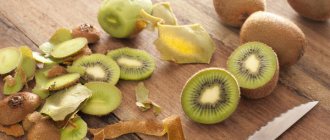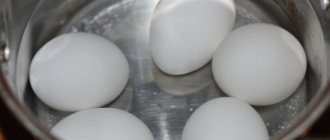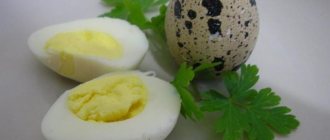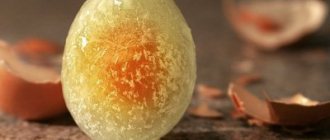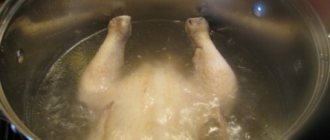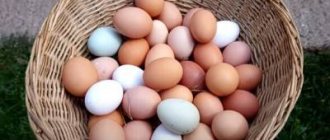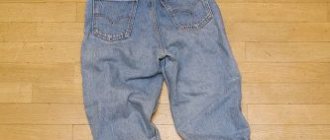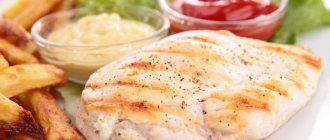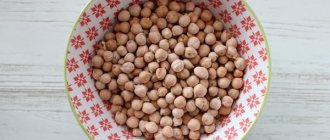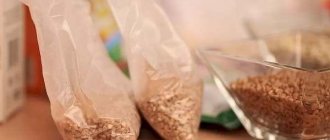One day I had to peel two dozen boiled eggs. It would seem that what is so difficult about this? But that time something went wrong - the shell stubbornly did not separate from the protein, as if it had been glued with superglue. After suffering for almost an hour, I decided at all costs to find a way that would allow me to peel eggs with one movement of my hand. And, as it turned out later, there really is such a method, and it consists of two simple steps.
How to peel boiled eggs: 6 ways
The fresher the egg, the worse it peels after boiling - this has been proven by science and practice. The thing is that in such eggs there is practically no air space between the white and the shell - hence the difficulties. But there is always a way out!
- Method 1. baking soda into a saucepan of water where the eggs will be boiled The pH level of the proteins will increase, which will prevent the film between the protein and the shell from sticking. An egg boiled this way is much easier to peel.
Soda
- Method 2. In the boiled egg, make holes at both ends about 0.5 cm in size. Peel the shells from them and blow strongly into the hole from the sharp edge of the egg. Moreover, not just strong, but very strong! The egg is blown out by breaking the shell.
- Method 3. A wonderful opportunity to quickly peel several eggs at once. After boiling them, you need to drain not all the water from the pan, but leave about a centimeter from the bottom. Now, with fairly vigorous shaking and rotation of the pan, you need to make the eggs spin in it, resembling a whirlpool. With this circular movement, the eggs knock against each other and against the walls of the pan, cracks form on the shell, into which water penetrates, making it easier for the shell and film to separate. The only condition is that the pan must be large and wide enough.
- Method 4. Place the boiled egg in a glass of water and close the top tightly with your palm. Then we begin to shake the container, causing the egg to hit the walls. The same mechanism of cracks in the shell, through which water gets under it, is triggered. The shell is then removed almost in one motion. Another way to peel boiled eggs is to put it in a small jar and cover it with a plastic or screw cap instead of your palm.
- Method 5. An original method that can be used peel eggs for any purpose: for salad, for stuffing or just eating for breakfast. Cool the hard-boiled egg and cut it into two parts along with the shell. Then take a spoon and carefully remove both halves. By the way, in this case, with fresh eggs the situation is easier and requires minimal time.
- Method 6. Boil the egg, cool and roll it in your hands or on the table, pressing lightly. After this, the cracked shell more easily falls away from the protein along with the film.
Roll out
What to pay attention to before cooking
The first thing you need to pay attention to is, of course, freshness. To do a simple home freshness test, dip the eggs in water. The fresher the egg, the heavier it is. Therefore, a perfectly fresh product will immediately sink to the bottom. Eggs that have not sunk sufficiently or that have floated to the surface should not be eaten. Another way is to shake it near your ear. If the egg is fresh, you will not hear any sounds; if not, when shaking you can hear splashing and splashing. Needless to say, under no circumstances should you eat a product that has an unpleasant odor or an unhealthy residue.
Eggs with damaged shells must be cooked immediately. Otherwise, it is better to throw them away - such a product cannot be stored.
Under no circumstances should washed eggs be stored. They can only be washed immediately before cooking. The shell is covered with a protective layer on top, which helps to resist external influences and the ingress of microorganisms. Thus, washing eggs before storing shortens their shelf life.
How to peel hard-to-clean eggs?
Eggs are poorly cleaned for two reasons:
- The eggs are completely fresh, literally just from a laying hen.
- The eggs were frozen for a long time, incl. and in the refrigerator.
Reveal Freshness
After the egg is boiled, it needs to be cooled in cold water for a few minutes. But before that, hit it so that the shell cracks and water can get under it, which will make cleaning easier.
- Start peeling the eggs from the blunt side, where there is a small air gap (puga), which will allow you to begin peeling without damaging the white.
- Clean the eggs under running cold water - it helps make the cleaning process easier and better.
Glass of water
To do this you will need a glass with thick walls. Not too big so that you can tightly cover it with your palm, but not narrow so that the egg has enough space inside to accelerate properly.
Place the egg in a suitable container. Fill completely with water. Cover tightly with your palm. Start shaking. Strongly. So that the product hits the walls of the dish. This way, water penetrates under the cracked shell and helps clean the egg completely.
To prevent liquid from spilling, it is best to do this over a sink.
How to properly boil an egg to make it easier to peel?
- How to properly boil an egg to make it easier to peel? Place the egg not in cold water, but in boiling water . In cold water, the protein slowly heats up, causing it to stick to the film that separates it from the shell.
Difference
- Do not boil very fresh eggs; it is better if they sit for a week or two, then the shell is less dense and the egg is easier to peel.
- To prevent the eggs from cracking during cooking and the whites from leaking out, you should warm them up in warm water to room temperature or slightly higher, add a pinch of salt or a quarter cup of vinegar to the water.
- You can also pierce it from the blunt side, this make peeling the egg easier and will prevent possible dents.
Blow into the egg
This method is suitable for people with great lung strength. To do this, you need to make holes at both ends of the egg. About the size of a coin. After this, you need to lean your mouth against one of the holes, pressing your lips tightly to the product. After that, you need to blow hard. If successful, the egg will simply fall out the other end. This method will also work if the egg was of good quality, fresh and without damage to the integrity of the shell. You also need to understand that it is also important to cook the product correctly.
How long and how should you boil eggs?
- How long and how should you boil eggs? Egg . If you need a “pouch” consistency, 3 minutes is enough. from the moment of boiling. Soft-boiled eggs should be cooked for 6 minutes, and hard-boiled eggs - about 11-15 minutes.
By time
- Quail egg . Due to its small size and correspondingly smaller amount of content, it takes up to 40 seconds for a quail egg to boil “into a bag”, for a soft-boiled egg – one and a half minutes, and to hard-boil a quail egg, it takes up to 3 minutes.
- Ostrich egg . These giants among eggs require much more time to cook: from 20 minutes, if you need eggs “in a bag,” to 45 minutes. soft-boiled and it will take a whole hour and a half to get a hard-boiled egg.
Knowing how long you need to boil eggs, you can cook eggs in the form in which you would like to eat it for breakfast or add it to any dish. In addition, peeling an egg that is properly boiled is much easier.
Shake
This method will be ideal for several eggs. Thus, you can clean at least a dozen. For this you need a saucepan. You can take the one in which the product was cooked. Next, you need to drain the water. But not completely. It is advisable to leave a couple of cm of liquid. Then you need to take the dishes in your hands and shake. But you need to do this so that the eggs inside rotate in a circle. You need to do this strongly.
The eggs will crack from hitting the walls. And the water will get under the shell and then it will become easier to clean them.
Algorithm for boiling eggs
In order for the product to be tasty and the preparation to be hassle-free, you need to:
- Choose only good quality eggs. Before cooking, take them out of the refrigerator for a while to warm them up a little.
- Choose a suitable pan with a thick bottom and walls. Place the eggs tightly on the bottom so that they do not move freely around the dish.
- Pour water on top so that it covers the product by about 5 cm.
- Add a teaspoonful of regular baking soda.
- Cook over medium heat after boiling for as long as needed depending on the desired result.
- Remove the pan from the heat, drain the hot water and pour cold water over the eggs. You can change it as it warms up. You can also place the pan under a stream of cold water. Drain the water.
- Leave to cool for a few minutes.
Option 4: with a glass
The simplest and most reliable method involves using any container with hard walls. This could be a glass, a half-liter glass jar, a small plastic container, or even a tin.
Fill the selected container with about one quarter of the water, lower the egg into it and cover with a lid or palm. And then shake vigorously several times. It is advisable to do all this over the sink, since during the process water from the container may splash. Now the shell will be removed quickly and without problems.
Washing eggs before storage
What are the reasons that most people choose to wash eggs before storing? Some people, out of habit, wash all food before putting it in the refrigerator. But the most important reason is the fear of contracting salmonellosis. In this case, you need to understand that the infection comes from the chickens themselves, and not from the laid eggs. If birds are not kept properly, salmonellosis can spread extremely quickly. As for the egg, bacteria are found only on the shell. It is especially dangerous when there are remains of droppings on it.
Important!
Chicken eggs cannot be washed. Otherwise, the protective film covering the shell is removed. This causes the product to deteriorate faster. Therefore, store washed specimens for no more than 5 days, and store untreated ones for 30 days. The difference is quite noticeable.
Do I need to wash store-bought eggs? If there are any remaining droppings on them, carefully wipe them off with a dry cloth. And just before use, wash in hot water and soap.
To protect yourself from pathogenic bacteria, adhere to the following rules:
- Buy whole eggs without damage to the shell. Even if a small crack is visible on the product, infection can penetrate through it. Then the risk of contracting salmonellosis increases.
- After cooking, immediately throw away the shells, and wash all used items in hot soapy water, rinse and wipe with vinegar.
- Store eggs in a separate container with a lid, away from contact with other products.
- Prefer products from small poultry farms. Chicken care from such producers is much better than from large enterprises.
Keep the coop and chickens clean
Perhaps the easiest way to make sure your eggs are clean is to keep your nesting boxes clean. Also, check nest boxes early and often. Remove the eggs as soon as you find them.
Make sure there is a clean layer of straw or bedding for the falling egg. If the layer is too thin, the egg may fall onto a hard surface, crack, and yolk getting everywhere. Keep in mind that hens can also throw straw out of the nest, so replace it regularly and remove droppings as you go. Also, don't encourage your chicks to sleep in nest boxes. This is the main cause of the stern problem.
If you notice that one of your chickens has a dirty vent area (where the eggs come out) or those feathers seem dirty, it's time to give your chicken a bath. Just as you would wash a cat or dog, place the bird in a bathtub or basin, use warm water, a mild pet shampoo, and clean the dirty area. Dry the bird with a towel. For your safety, use rubber gloves when washing and disinfect your sink with a mild bleach solution.
Method for cleaning quail eggs
Quail eggs are distinguished by their miniature size. Therefore, the above methods are most often ineffective for cleaning them. You will still have to tinker a lot before you can completely clean them.
However, there is a relatively long but simple method for peeling quail eggs. To do this, put them in an enamel bowl and pour in a strong vinegar solution (1 part water and 2 parts table vinegar). The eggs will have to sit in this form for about 2-3 hours. However, in the end, the vinegar will corrode the thin shell and all that remains is to remove the thin film.
You might be interested in
- How to clean an enamel pan
- How to clean pots using office glue
- Cleaning enamel pots with folk remedies

